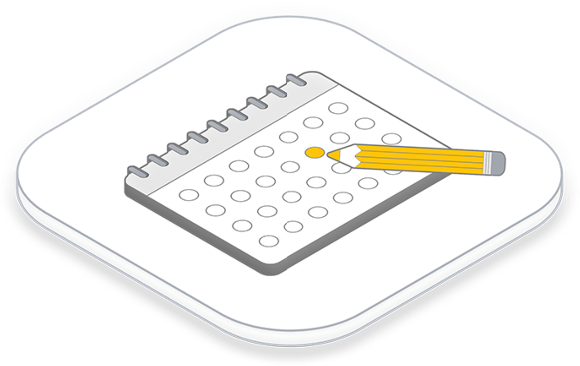In recent months, we have heard a lot about what generative Artificial Intelligence (AI) can currently do and to what extent it will influence our lives. As always since the invention of the steam engine, such revolutionary technological innovations raise the question of which occupations it may replace in the future. It is reasonably certain that activities that involve a high degree of repetitive processes can be automated and thus rationalized more easily than those that have a focus on cognitive and interactive actions. So we too are looking at which occupations fall into this category and will at least change significantly. In a second article, however, we will also take a look at professions that are newly emerging as a result of AI. For both perspectives, we want to be optimistic that AI will create more benefits than harm.
300 million jobs worldwide can theoretically be automated
A recent McKinsey report analyzes how the introduction of Artificial Intelligence will potentially change the U.S. labor landscape by 2030. The study estimates that nearly twelve million Americans in jobs with declining demand will have to change careers. While the so-called “Great Resignation” was driven by workers’ quest for better conditions, the McKinsey report shows that millions of people will have to retrain not out of choice, but out of necessity. Industries such as customer service, sales, hospitality and manufacturing could be particularly affected.
The report highlights that workers in the low-wage sector are up to 14 times more likely to be affected by these changes. In turn, a study by Goldman Sachs estimates that two-thirds of current jobs will be exposed to some degree of AI automation and that up to a quarter of current work will be replaced by generative AI. Extrapolating their estimates to the entire world, generative AI could expose the equivalent of 300 million full-time jobs to automation.
But there is also positive news: Demand in well-paying sectors such as healthcare, technology and transportation is expected to increase. In addition, according to current estimates, professions such as cooks, car mechanics, and jobs in forestry and agriculture will not be affected as much by the developments.
But let’s take a look at which sectors are likely to be particularly affected by the use of AI and why:
Manufacturing and production
Robots have been used in manufacturing for years, and AI can make these machines smarter and more versatile. Many activities in manufacturing are highly repetitive. This makes them predestined for automation, as robots can often perform these tasks faster and more accurately. In addition, AI systems can be equipped with sensors and cameras to perform quality checks in real time. This can increase the consistency and quality of manufactured products.
Administration / Office Work / Accounting
Routine tasks such as data entry or simple analyses are automated. Automated accounting systems, for example, can significantly speed up routine tasks such as categorizing expenses, reconciling accounts and generating reports. In addition, controlling requires the processing and analysis of large volumes of financial data. This is a task that AI systems will perform efficiently and accurately. The high degree of standardization should also be mentioned in particular, as many accounting tasks follow defined rules and standards (e.g. IFRS, GAAP), which facilitates automation.
Customer service
Chatbots and automated support systems could replace human customer service agents in some areas because they are able to handle a large number of customer requests simultaneously, which is especially useful when the volume of requests is high. In addition, AI systems are available around the clock and can handle requests when human employees are not available, such as at night or on holidays.
Financial services
Algorithms can already provide some forms of financial advice and are capable of monitoring and analyzing large volumes of transactions. But they can also analyze complex financial data to better assess risk and make predictions beyond the capabilities of traditional models. By analyzing transactional data, AI systems also detect anomalous activity to help identify fraud more quickly.
Medicine
Diagnostic AI systems can already analyze certain types of X-rays and scans with a high degree of accuracy, although they are unlikely to completely replace the role of the physician in the foreseeable future. In this sense, they will act as co-pilots, assisting physicians and improving the quality of care.
Retail
Automated checkout systems and warehouse robots complement or will partially replace human workers in supermarkets and warehouses. Self-service checkouts and even completely cashierless systems, for example, are increasingly enabled by AI technologies, speeding up the checkout process and saving staff.
Legal Services
Simple legal services such as document review are being automated by specialized AI systems. In the legal industry, there is often a vast amount of documents, case law, legal texts, and other information. AI can analyze these volumes of data faster and more accurately than a human. It can also review contracts for relevant clauses, risks and opportunities. This saves time and reduces the human error rate.
Journalism / text generation
Some types of news, such as financial reports or sports scores, are relatively easy to generate through AI. This allows journalists to focus on more complex stories and investigative reporting. Added value is also evident in data analysis. For example, AI can efficiently analyze large amounts of data, helping journalists identify trends or perform in-depth analysis that would take a lot of time manually. However, all these activities are not usable without fact-checking or quality-checking by a human.
Interpreter
AI systems are capable of translating texts and spoken words in real time, which is beneficial for business negotiations, tourists or international events. While human interpreters are not always available everywhere, AI systems can be easily accessed via the internet. In doing so, they are usually cheaper than human professionals, especially for tasks that do not require a high level of expertise. Last, AI solutions can be trained for many languages, including those for which human interpreters are rare.
Programmer
There are already tools that automatically generate code for specific, often repeated tasks. This can increase efficiency and reduce the error rate. In addition, the systems can analyze this code and identify potential errors or vulnerabilities – often more efficiently than human review processes. AI is also capable of automatically generating and running tests for software, which could improve the quality of the software and speed up the development process.
It is becoming clear that broad use of AI will fundamentally change the world of work. However, this will not happen overnight, so there are ways to position your company wisely in the context of AI while creating a smooth transition for people. This is because AI will not only make occupational groups obsolete, but will definitely also create new occupational fields and jobs. You can find out what these are in our next blog post.
Do you want to find out what changes AI means for your company? Book a get-to-know-you call and we’ll talk about it without obligation.
About the author



Comments